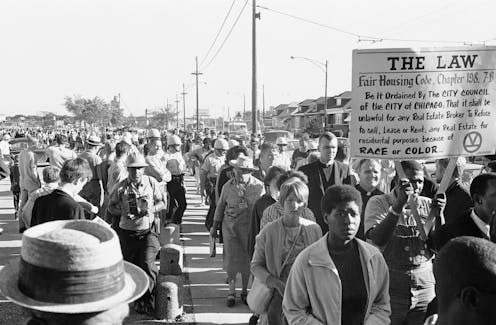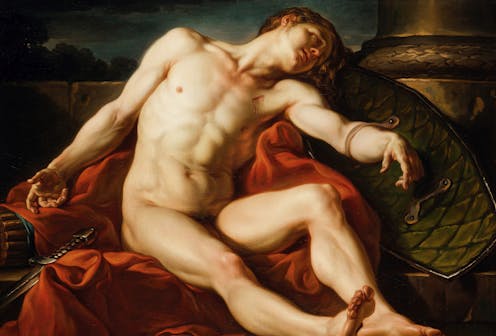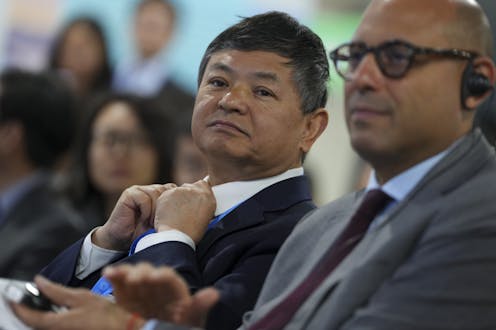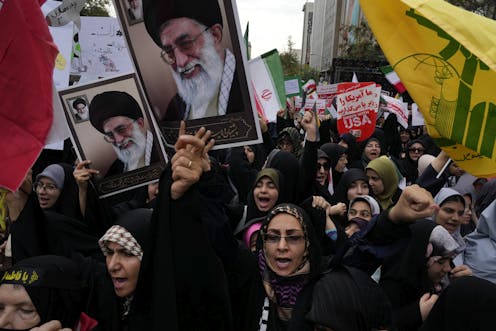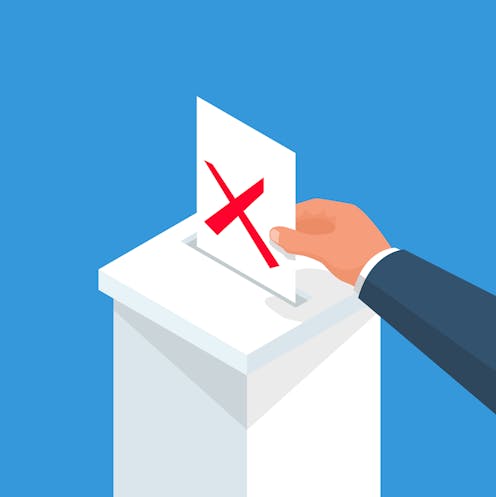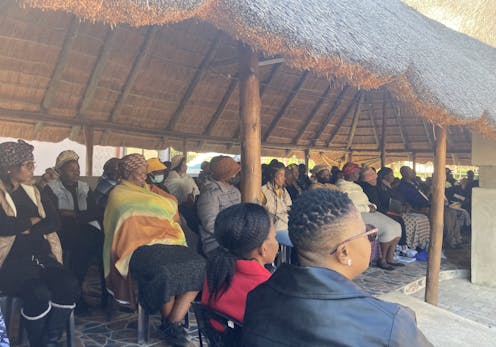Islamist party lost Tunisia elections, but it has won the country’s trust
 Moving on up: supporters of Call of Tunisia celebrate their victory.EPA/Mohamed Messara
Moving on up: supporters of Call of Tunisia celebrate their victory.EPA/Mohamed MessaraLooking at the results of the 2014 Tunisian elections, it’s easy to assume that Islamism in the country has been driven to the political periphery. This would be premature.
The Islamist party, Ennahda, won the second largest percentage of votes in the October vote: 69 of the 217 seats (31.79%), significantly less than the 89 (42%) they held in the National Constituent Assembly after the 2011 elections. Meanwhile, Nidaa Tounes (Call of Tunisia), the secular counterpart and main rival to Ennahda, won with 85 (39.17%).
This is unquestionably a disappointment for the Islamists. At the 2011 election, Ennahda was a more organised political force than any its political rivals. From its charismatic leader, Rachid Ghannouchi, down to its effective grassroots campaigning, Ennahda stood out in a disorganised sea of parties.
Then, over the next three years, the opposition regrouped as Ennahda failed to meet the unrealistically high expectations it inherited. Revolutions cause more problems than they solve, and no party could reasonably address all the problems Tunisia faced after the Arab Spring.
Deadlock
Ennahda’s failure to fix the deep problems in Tunisia should not imply incompetence; after all, I-Watch’s Jomaa-Meter shows the technocratic government has fared no better.
And to give credit where it’s due, Ennahda has been politically astute and flexible and has proven that it is willing to compromise for the sake of Tunisia. It has been constantly forced to reassure the secular and liberal currents in Tunisia – and the foreign media – of its democratic credentials. It is not looking to take over the whole society and culture via democratic mechanisms, as some have accused the Morsi government of trying to do in Egypt.
With regards to the new constitution, Ennahda surrendered its preferred references to Islamic law, to the dismay of conservative voices in its own ranks and elsewhere. After the political deadlock of summer 2013, a time of crisis, it withdrew from government and handed over to a technocratic administration – defying the cliché that all Islamist movements are prepared to use and abuse democracy to hold on to power.
In the spirit of inclusion, Ennahda voted against laws that would exclude members of the old regime from participating in latest elections. Now, the Islamist leaders have been humble in defeat, with Ghannouchi photographed telephoning Nidaa’s leader, Beji Caid Essebsi, and declaring that defeat for his own party is still a victory for Tunisia.
The party’s message of Islamic inspired-democracy clearly still resonates: 31% of the electorate voted for it. Ennahda have played an important part of guiding Tunisia through its post-revolution transition and, after two decades in prison or exile, it will remain an important player in the Tunisian political scene.
Staying safe
Ennahda’s governance also fell short in its ability to contain terror threats. The liberty that the transition period brought also produced instability and increased levels of terrorist activity. The situation in Libya has also affected Tunisia’s security – yet the political assassinations in 2013 and violence this year proved these issues were not being sufficiently tackled.
If radical elements are dissatisfied with the Nidaa victory, they also know a violent response would only be to their detriment. Nidaa contains former members of the pre-2011 RCD party, who are expert in the tools of the old security state. It’s plausible that a less liberal approach will be taken with groups who appear overtly religious in nature.
Indeed, there’s already been a crackdown since the Jomaa government took over, with a great many NGOs forced to cease their activities. Some were sanctioned for financial irregularity, but this was clearly a potential pre-cursor for increased state interference and oppression.
Still, Ennahda’s political performance is a healthy counterweight to the government’s power. It has proved that demonising the party as a bunch of uncompromising and undemocratic Islamists is unfair and reductive. The party’s consenus-building behaviour and ready-to-compromise approach, albeit under civil society pressure, has strengthened Tunisia’s relationship with Islamism, and proven that secular liberalists' fear that Ennahda would turn Tunisia into an Islamic state were unfounded.
Tunisia’s relationship with Islamism remains complicated – but a new and welcome trust is on display.
Alexander Martin receives funding from ESRC.

